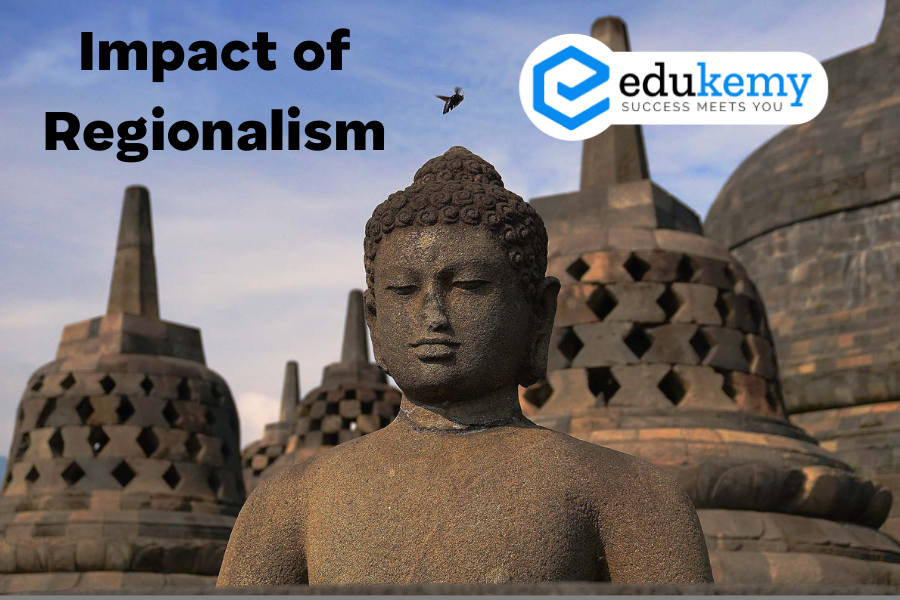
Regionalism, a socio-political and economic phenomenon, has significantly influenced global dynamics, shaping interactions among nations, economies, and cultures. Defined by the prioritization of regional interests over broader national or international concerns, regionalism manifests in various forms, from trade blocs and economic unions to cultural collaborations and political alliances. Its impact extends far beyond mere geographic boundaries, influencing policies, economies, and identities on both local and global scales. As regions assert their autonomy and pursue collective goals, the repercussions of regionalism reverberate across sectors, challenging traditional notions of sovereignty, cooperation, and globalization. Understanding the multifaceted impact of regionalism is essential in navigating the complexities of contemporary international relations and societal transformations.
| Positive Impact | Negative Impact |
| It can lead to inter-group solidarity in a particular region. People belonging to a region may feel the need to come together to protect their vested interests, setting aside their differences.Eg: Tripura Tribal Autonomous District Council that was formed in 1985 has served to protect the otherwise endangered tribal identity in the state by providing a democraticplatform for former separatists and has reduced the need for political extremism in the state. | It can have adverse impacts on national integration, as loyalty to a particular regionremains stronger than loyalty to the nation. Thus, it can be seen as a threat to the progressand unity of the nation. |
| Given the increasing uncertainty in the contemporary globalized world, regionalism has become a source of identity among people. The accommodation of such identities is healthy for maintaining the socio-cultural fabric of India. | It makes people from one region feel disdain or dislike towards people from other regions. This makes the differences between regions more pronounced and increases identity-based politics. Sometimes, it’s used for political gain to attract votes. |
| It may induce competition among people of a region and propel them to do better to improve the status of their region.Eg: Competitive federalism in India and ensuing competition among states regardingresources, setting up of industries, infrastructural facilities, etc. | Uneven development in different areas can cause some places to feel left behind, leading to demands for independence or separation. When people protest for these regional demands, it can cause problems with law and order. Sometimes, these demands turn violent, creating security challenges within the country. It may even attract outside groups like terrorists or extremists, leading to disruption by encouraging people to revolt. |
| It can be essential in nation-building when it includes federal elements. Regional interests don’t always conflict with national interests. In reality, it helps maintain the “salad bowl theory.” Like in a bowl of salad where different flavors are retained individually but are together, similarly in India, new identities are embraced while traditional ones are also preserved. | |
| Recognition of regions as separate states or granting autonomy provides self-determination to the people in that area, making them feel empowered and content. In India, regionalism has largely expressed itself through internal self-determination of communities based on language, tribe, religion, region, or a mix of these factors, both historically and presently. |
Contents
- 1 FAQs
- 1.1 1. What is regionalism, and how does it impact global economics?
- 1.2 2. How does regionalism affect international trade?
- 1.3 3. What are the implications of regionalism on globalization?
- 1.4 4. How does regionalism impact political dynamics?
- 1.5 5. What are the socio-cultural effects of regionalism?
- 2 In case you still have your doubts, contact us on 9811333901.
FAQs
1. What is regionalism, and how does it impact global economics?
- Regionalism refers to the process of countries forming economic, political, or cultural blocs based on geographic proximity or shared interests. Its impact on global economics can be significant, as it influences trade patterns, investment flows, and economic integration within regions.
2. How does regionalism affect international trade?
- Regionalism can lead to the formation of preferential trade agreements (PTAs) among member countries, which facilitate trade by reducing tariffs and other barriers within the region. While this can boost intra-regional trade, it may also divert trade away from non-member countries, potentially leading to trade conflicts and inefficiencies.
3. What are the implications of regionalism on globalization?
- Regionalism can either complement or challenge globalization. While regional integration can deepen economic ties within a region, it may also create barriers to trade and investment from non-member countries, potentially hindering global economic integration. The balance between regionalism and globalization depends on the extent of openness within regional blocs and their engagement with the broader global economy.
4. How does regionalism impact political dynamics?
- Regionalism can influence political dynamics by fostering closer diplomatic relations and cooperation among member countries. However, it may also exacerbate tensions between neighboring regions or create divisions within countries over the benefits of regional integration. Managing these political implications is crucial for the success and stability of regional initiatives.
5. What are the socio-cultural effects of regionalism?
- Regionalism can have socio-cultural effects by promoting cultural exchange, fostering shared identities among member countries, and facilitating people-to-people connections within the region. However, it may also lead to cultural homogenization or exacerbate existing cultural differences, depending on the level of integration and the diversity of member states.
In case you still have your doubts, contact us on 9811333901.
For UPSC Prelims Resources, Click here
For Daily Updates and Study Material:
Join our Telegram Channel – Edukemy for IAS
- 1. Learn through Videos – here
- 2. Be Exam Ready by Practicing Daily MCQs – here
- 3. Daily Newsletter – Get all your Current Affairs Covered – here
- 4. Mains Answer Writing Practice – here

